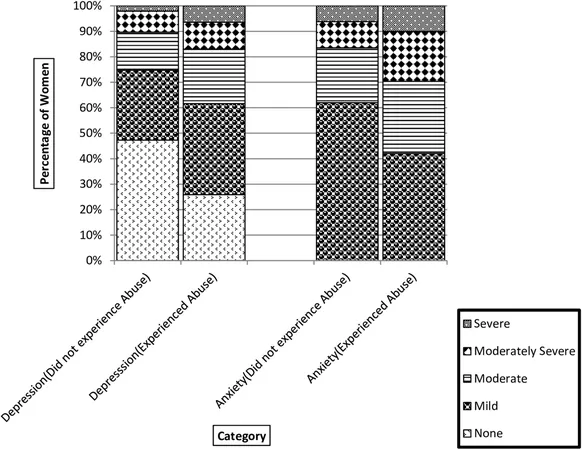
Navigating Dual Crises: Mental Health of Racially Minoritized Women Facing Domestic Abuse Amidst the COVID-19 Lockdown in the UK
2024-12-23
Author: Noah
Introduction
The COVID-19 pandemic has exposed and exacerbated deep-rooted social challenges, particularly among racially minoritized women who are experiencing domestic abuse. These women are not only at a heightened risk of violence but are also subjected to systemic inequalities and social stressors, leading to increased mental health issues like anxiety and depression.
The Mental Health Crisis During the Pandemic
Research highlights a stark reality: racially minoritized women in abusive relationships have reported significantly lower mental health indicators compared to both their non-abused counterparts and white women who have faced similar situations. During the pandemic, factors such as social isolation due to lockdowns have intensified existing racial health disparities, further aggravating the mental anguish experienced by these women. A nuanced understanding of their experiences can lead to better-targeted interventions.
Understanding Minority Stress and Its Impact
The Minority Stress Model sheds light on how discrimination and stigma contribute to the mental health challenges of these women. The intersection of domestic abuse with systemic inequities creates a perfect storm for poor mental health outcomes. Recent data shows that around 67% of racially minoritized women surveyed during the pandemic experienced at least one form of abuse, with significant percentages reporting heightened levels of depression and anxiety.
Protective Factors and Resilience
Interestingly, certain protective factors have emerged that may lessen the emotional burden. Resilience, social support, and autonomy stand out as crucial buffers. Resilience, defined as the capacity to recover from difficulties, has been linked to improved mental health outcomes. Similarly, strong social networks provide emotional support that is essential for coping with the aftereffects of abuse. Autonomy—the ability to make independent decisions—has also been correlated with better psychological wellbeing among women facing domestic abuse.
The Role of Family Dynamics
On a more personal level, the dynamics of family relationships play a critical role. Poor family functioning is associated with adverse mental health effects, yet there remains a dearth of research on how each family member's identity impacts these relationships, particularly for racially minoritized women. Further exploration could reveal significant insights into the interplay between familial support systems and mental health.
The Issue of Self-Silencing
Self-silencing is another profound issue that emerges in intimate relationships, particularly among women conditioned by social norms to prioritize their partners' needs over their own. This behavior can lead to heightened depression, particularly when coupled with domestic abuse. It highlights the necessity for targeted strategies that help women break free from damaging relational patterns that harm their mental health.
Survey Findings and Mental Health Disparities
In a recent survey involving 1,202 racially minoritized women, significant disparities in mental health status were noted. Those who experienced domestic abuse reported elevated levels of depression and anxiety alongside reduced wellbeing and resilience. Alarmingly, nearly one-third of these women faced moderate to severe anxiety, contrasting sharply with the experiences of those who did not report abuse.
Conclusion and Future Directions
The findings from this research strongly correlate with the Minority Stress Model and underscore the urgent need for culturally competent mental health resources tailored to the unique challenges faced by racially minoritized women. The pandemic's confinement measures have rendered existing support systems even more critical, necessitating innovative approaches to mental health care.
As we navigate the aftermath of Covid-19, it's crucial that mental health strategies incorporate the lived realities of racially minoritized women. This approach should encompass a focus on fostering resilience, enhancing autonomy, and improving family dynamics, all while addressing the larger societal changes needed to reduce instances of domestic abuse.
Future research is warranted to delve deeper into the complexities of mental health for racially minoritized survivors of abuse, particularly as we adapt to a post-pandemic landscape. Only by addressing these multidimensional challenges can meaningful progress be made toward healing the invisible wounds inflicted by both the pandemic and domestic violence.









 Brasil (PT)
Brasil (PT)
 Canada (EN)
Canada (EN)
 Chile (ES)
Chile (ES)
 España (ES)
España (ES)
 France (FR)
France (FR)
 Hong Kong (EN)
Hong Kong (EN)
 Italia (IT)
Italia (IT)
 日本 (JA)
日本 (JA)
 Magyarország (HU)
Magyarország (HU)
 Norge (NO)
Norge (NO)
 Polska (PL)
Polska (PL)
 Schweiz (DE)
Schweiz (DE)
 Singapore (EN)
Singapore (EN)
 Sverige (SV)
Sverige (SV)
 Suomi (FI)
Suomi (FI)
 Türkiye (TR)
Türkiye (TR)